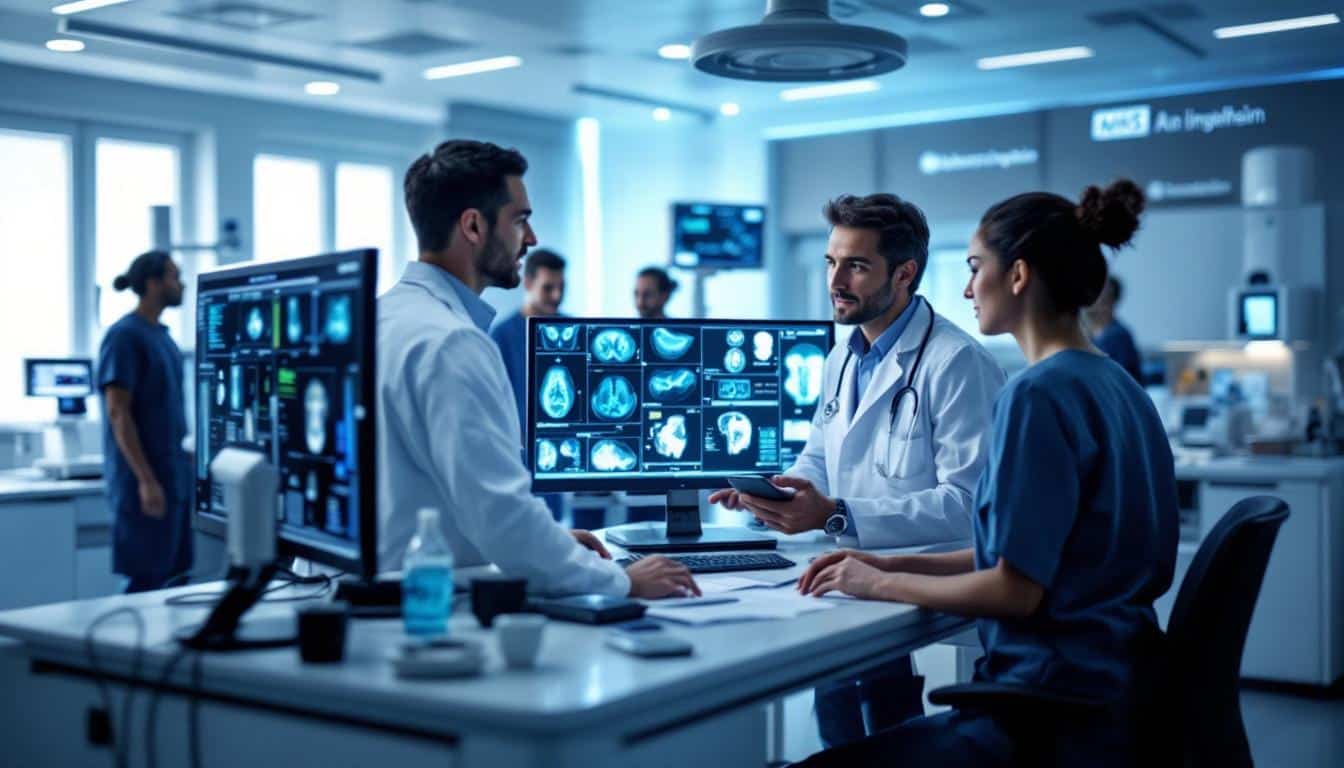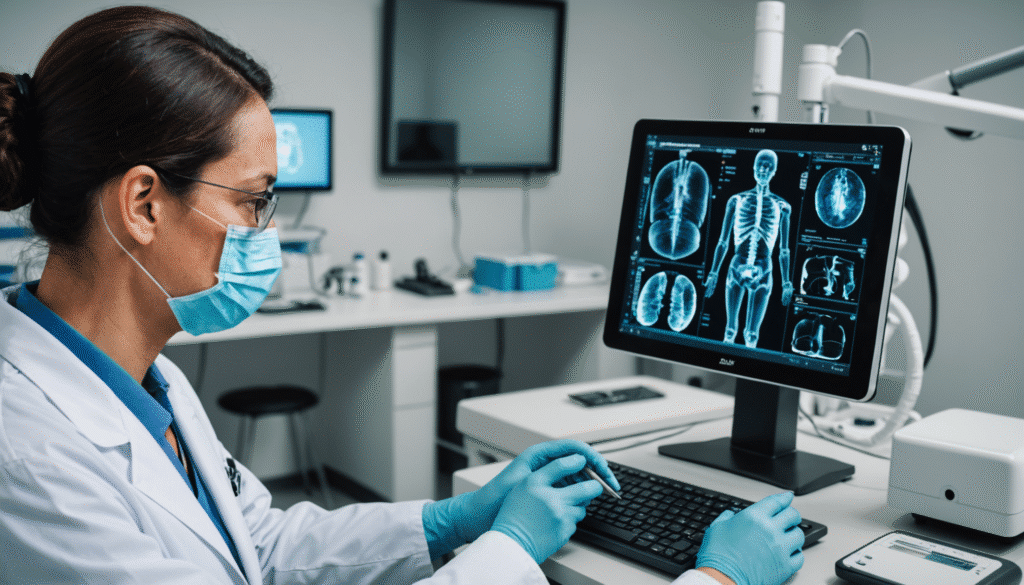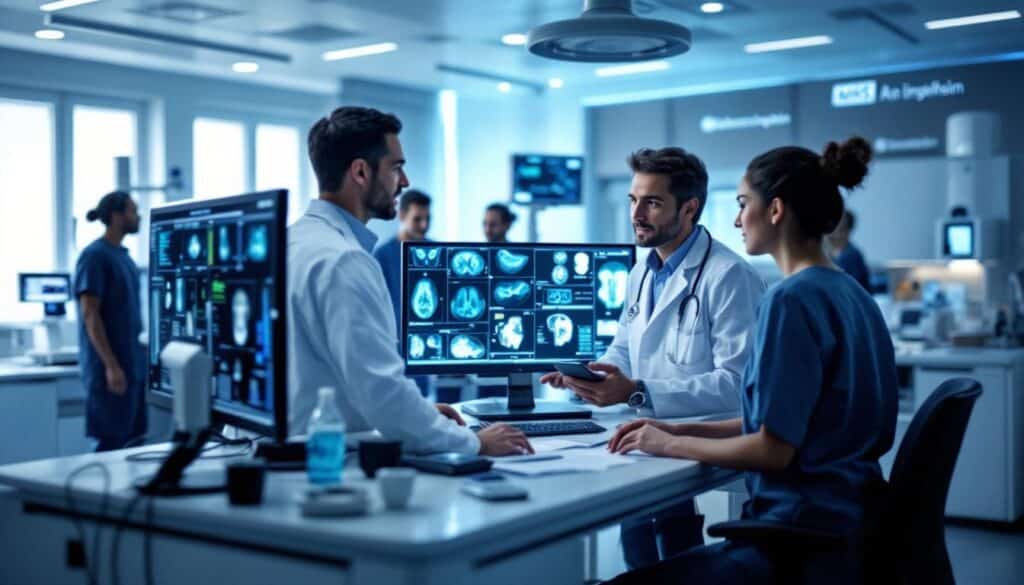In a revolutionary advance, legislation paves the way for advanced medical devices powered by <strongartificial intelligence. The Health Tech Investment Act is seen as a crucial step towards integrating AI into daily health solutions. This bipartisan effort ensures that cutting-edge technologies benefit from the necessary reimbursement pathways.
With AI transforming patient care, particularly in areas like radiology, healthcare professionals can now harness its capabilities to analyze images quickly and with greater accuracy. Establishing a stable reimbursement framework will not only facilitate the adoption of these technologies but also optimize the allocation of resources within the healthcare system. Medtech industry leaders are praising this initiative, viewing it as an essential step towards improving diagnostic and therapeutic accuracy.

The bipartisan law on health technology investment will improve patient access to medical devices equipped with artificial intelligence
The recent bipartisan law on health technology investment represents a major advance for the medical sector. This legislation, backed by senators from both sides of the political spectrum, aims to create a stable framework for the reimbursement of medical devices incorporating artificial intelligence (AI). By establishing clear payment pathways, this law paves the way for broader adoption of innovative technologies, thereby improving patient access to higher quality care.
What are the main objectives of the Health Tech Investment Act?
The Health Tech Investment Act, introduced by Senators Mike Rounds and Martin Heinrich, has the primary goal of securing funding for medical devices approved by the FDA that utilize AI and machine learning (ML). By defining predictable reimbursement mechanisms, the law encourages companies to develop innovative technological solutions without fearing financial uncertainties. This stability is essential to promote innovation and ensure that new technologies can quickly benefit patients.
Furthermore, this legislation aims to reduce administrative barriers and simplify the process of integrating AI devices into the healthcare system. By improving care flows, the law allows for the faster adoption of advanced technologies, such as algorithm-based health services (ABHS), which can transform the diagnosis and treatment of diseases.
How is AI transforming patient care in radiology?
Artificial intelligence is playing an increasingly crucial role in the field of radiology. AI-equipped medical devices allow physicians to quickly and accurately analyze medical images, facilitating the early detection of diseases and anomalies. This ability to identify pathologies at an advanced stage contributes not only to more accurate diagnoses but also to more effective treatments, thereby improving clinical outcomes for patients.
For example, technologies like those developed by Histosonics enable in-depth tissue analysis, offering detailed insights that can transform the management of complex diseases such as cancer. By integrating such innovations, healthcare facilities can provide more personalized and effective care.
What are the economic benefits for the healthcare system?
The adoption of AI-equipped medical devices presents significant economic advantages for the healthcare system. With increased diagnostic accuracy, these technologies reduce medical errors and unnecessary treatments, thus optimizing resource utilization. This results in decreased operational costs and better allocation of healthcare budgets.
Moreover, the increased efficiency of care allows for treating a larger number of patients without compromising service quality. This is particularly relevant in the current context where healthcare facilities face challenges such as growing cybersecurity threats, which can disrupt operations and incur additional costs. By investing in robust and effective technologies, the healthcare system can not only improve the quality of care but also enhance its resilience against these challenges.
What challenges remain for the integration of AI technologies in healthcare?
Despite the obvious benefits, the integration of AI-based technologies into the healthcare system encounters several obstacles. One of the main challenges lies in the limited reimbursement of AI devices, complicating their adoption by healthcare providers and institutions. Without a clear reimbursement pathway, investments in these technologies may appear risky, thus hindering their large-scale deployment.
Additionally, issues such as bottlenecks in the manufacturing of medical technologies can delay the availability of innovative devices on the market. The Health Tech Investment Act addresses these challenges by providing a solid regulatory framework and facilitating access to the necessary funding to overcome these obstacles.
The impact on healthcare professionals
Healthcare professionals also benefit from the adoption of AI devices. By automating certain diagnostic tasks, physicians can focus more on the clinical aspects of care, thereby improving their efficiency and reducing work-related stress. This reorganization of tasks contributes to higher job satisfaction and a reduction of burnout among practitioners.
What is the industry support for this legislation?
The medical industry is strongly supporting the Health Tech Investment Act. Organizations such as AdvaMed and GE HealthCare have expressed their approval, emphasizing the importance of a stable reimbursement framework to foster innovation. Scott Whitaker, President and CEO of AdvaMed, stated: “With AI-equipped medical technologies already making remarkable advances in patient care, it is crucial to establish a predictable reimbursement pathway.”
Peter J. Arduini, President and CEO of GE HealthCare, also highlighted the expertise of Senators Rounds and Heinrich in the field of AI in health, and expressed optimism regarding the implementation of this legislation. The support from industry leaders is essential to ensure that the law meets the real needs of the sector and encourages the development of technologies beneficial to patients.
Furthermore, the expansion of mental health services by companies like Deux Chaises illustrates the diversity of AI applications across various medical fields, thereby reinforcing the importance of a favorable legislative framework.
How does this law influence future medical innovation?
The Health Tech Investment Act has the potential to stimulate a new era of medical innovation. By guaranteeing stable reimbursement, the law encourages companies to invest in research and development of new AI-based technologies. This dynamic fosters the emergence of more advanced and personalized medical solutions tailored to the specific needs of patients.
Moreover, the legislation facilitates collaboration between public and private stakeholders, creating an environment conducive to innovation. This synergy allows for more effective overcoming of challenges related to the development and implementation of medical technologies, thus accelerating their market entry. For instance, initiatives aimed at bringing technological companies like Histosonics to market are facilitated by a stable and favorable legislative environment.
Ultimately, this law not only addresses immediate reimbursement issues but also lays the groundwork for a future where AI and innovative medical technologies will play a central role in improving patient care and the efficiency of the healthcare system.
#>













